By George Pór for Enlivening Edge Magazine
In part 1 of this column, I mentioned, “A transformative community of practice (TCoP) is a group of transformative agents, who share a passion for vertical development at all scale (from individual and team, to community, organization, and larger social systems), as their domain of practice.”
What makes one a transformative agent?
Transformative agents are allies of evolution, individuals who are authentically committed to the evolution of themselves and those (people and systems) whose life is touched by theirs. They have an ever-more intimate relationship with the creative impulse of the universe, manifesting in/through/as themselves.
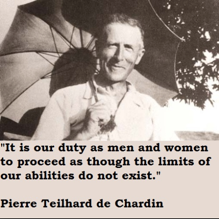 When I meet any of them, I feel uplifted by the knowing that together we can hold and absorb much more complexity present in the landscape of emergence surrounding us. But it’s more than knowing that. It’s also what Pierre Teilhard de Chardin described as follows: “There is almost a sensual longing for communion with others who have a large vision. The immense fulfilment of the friendship between those engaged in furthering the evolution of consciousness has a quality impossible to describe.”
When I meet any of them, I feel uplifted by the knowing that together we can hold and absorb much more complexity present in the landscape of emergence surrounding us. But it’s more than knowing that. It’s also what Pierre Teilhard de Chardin described as follows: “There is almost a sensual longing for communion with others who have a large vision. The immense fulfilment of the friendship between those engaged in furthering the evolution of consciousness has a quality impossible to describe.”
I’m blessed with some friendships of that quality. When I ask them about what is the question to which their life is the answer, they might not wax philosophical, but supporting evolution carrying itself forward in one domain or another, is frequently included in what they find the most meaningful to them. (An aside: what would you say?)
In the coming dark night of the planetary soul, it is more important than ever that transformative agents meet not only in two’s and three’s, but in communities of practice so that they can refine their craft with increasing speed and precision.
How to Seed and Grow a TCoP?
Start at the only place you can, where you are, with yourself. Engage in a rigorous self-inquiry into what you’d consider the qualities of a transformative agent. Assess candidly, which of those qualities are strongly present in you, and which are the ones you prioritize for strengthening. Then think about these questions:
What field of action has attracted or is attracting your attention the most strongly? How are you transforming it? Can you imagine what you would see different in the field, if you could increase your transformational effectiveness 10-fold?
Go for the transformation of your very practice of transformation, as to reach greater impact. You will realize that you can’t do it by yourself. You heard the African proverb:
If you want to go fast, go alone!
If you want to go far, go together
Now, you can add to it:
If you want to go far and fast,
go with a Transformative Community of Practice!
The positive impact of transformative agents and their TCoP is exponential, almost by definition. When they express their evolutionary purpose in the action of catalyzing the transformative capabilities of others, the ripple effects keep rippling on.
If I whetted your appetite and you want to become a member of a TCoP, you don’t have to look for one; it will find you. Your just need to commit to the following two conditions:
Keep up the work on your own intentional development.
Sense, be available and respond to how the evolutionary impulse manifests itself in your chosen field(s)
If you are already in contact with or you think you can attract a group of people who share your highest aspirations, then do what the future in need of your wise action is asking from you: use your capacity for profound listening in a generative conversation with them. If both of you feel inspired by it, then invite all with whom you experienced that “co-initiation” to come together.
There are many excellent resources for how to cultivate a community of practice. To grow a TCoP, draw on those resources and infuse them with the insight gained from your transformative practice. To start with, you can read WHY COMMUNITIES OF PRACTICE? PART 3 – CULTIVATING POWERFUL, SATISFYING COMMUNITIES OF PRACTICE or, if you want to dive deeper, read the “bible” of the field, Cultivating Communities of Practice: A Guide to Managing Knowledge. (I will post below more resources.)
Why We Need TCoPs?
It’s time to dissipate a dangerous illusion. A TCoP is not better than an “ordinary” CoP. They can be equally good fits to address the (different) tensions in the organizational or social body, which called them into being.
“Classic” (Orange) CoPs are centered on the practice, with an emphasis on meeting the members’ professional needs. “HumanBond”-prioritizing (Green) CoPs are centered on the community, as a web of relationships. Transformative Communities of Practice (Teal) are centered on the practice of vertical development, which they can do with better results in the learning community of fellow transformative agents.
While the various shades of CoP are crossing various value systems, what is the most remarkable about the core of the concept itself is how much it can use the transition from one with a narrower set of values to the one with a broader one.
As Etienne Wenger observed, “the very characteristics that make communities of practice a good fit for stewarding knowledge—autonomy, practitioner-orientation, informality, crossing boundaries—are also characteristics that make them a challenge for traditional hierarchical organizations.”
In that very tension we find the fundamental dilemma of the late capitalism in the knowledge-based economy. To increase productivity, it must reduce the cost of capability development in the workforce, for which CoP seems to be an eminently suitable tool.
However, no community will deliver the hoped-for organisational results, if it doesn’t meet the human/emotional needs of having authentic relationship, free from the professional mask that members have to hold in their “day job.” When traditional management starts learning that in order to pursue its goals, it has to provide space for authentic community emerge, we are witnessing the prototyping some of the essential capabilities that employees need to develop for self-management, for someday working without bosses.
Another illusion would be idealizing communities of practice and thinking of them as the complete model for the future of organizing not only peer learning but also peer-based production. My experience in working with many CoPs taught me that if the members’ personal development is arrested and they still operate from fear, competition, “predict and control” linear thinking and other ego manifestations, they are just re-constructing the same old-same old game on the new playing ground.
Transformative Communities of Practice will change the rules of the game, and placing vertical development in their center, they become a collective ally of evolution, a force to be reckoned with. How can they become a game changer in the organization and larger social systems?
TCoP as an Evolutionary Force
Even if catalyzing transformation is in the DNA of TCoP, it still needs mechanisms through which it can deliver on its promise at a larger scale. One of them can be what is known already in the world of “classic” CoP: the constellation of CoPs. From a knowledge-management perspective, “an effective organization comprises a constellation of interconnected communities of practice, each dealing with specific aspects of the company’s competencies…”. COMMUNITIES OF PRACTICE: LEARNING AS A SOCIAL SYSTEM BY ETIENNE WENGER
That kind of constellation can exist also at inter-organisational or sector-of-society scale. An example of the latter is what Jules Fell wrote about recently in Enlivening Edge Magazine.
A constellation of Transformative Communities of Practice operating at the scale of social sectors can become the system of influence necessary for the emergence of the tipping point. How would that work?
I can’t resist quoting here Lia Aurami quoting Anna Betz quoting Margaret Wheatley’s and Deborah Frieze’s essay 🙂 because the original quote was seminal to developing my thinking about TCoP as an Evolutionary Force.
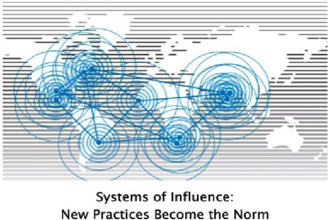 “Unless a social movement as a network develops into communities of practice it cannot become a system of influence. Communities of practice are of vital importance because through them, people grow the necessary capabilities and structures that enable a new system to emerge—not as a social movement taking over institutions by force, but by growing into a System of Influence and thus becoming the new mainstream, making old structures obsolete.
“Unless a social movement as a network develops into communities of practice it cannot become a system of influence. Communities of practice are of vital importance because through them, people grow the necessary capabilities and structures that enable a new system to emerge—not as a social movement taking over institutions by force, but by growing into a System of Influence and thus becoming the new mainstream, making old structures obsolete.
“The third stage in emergence can never be predicted. It is the sudden appearance of a system that has real power and influence. Pioneering efforts that hovered at the periphery suddenly become the norm. The practices developed by courageous communities become the accepted standard… People no longer hesitate about adopting these approaches and methods and they learn them easily.”
Of course, it’s easier and might be faster to adopt certain ways organizing work than grow a constellation of Transformative Communities of Practice needed for a social system to tip into the next stage. How can we do that? I don’t have the answer, but I strongly believe that it’s worth finding out. Maybe with your help?
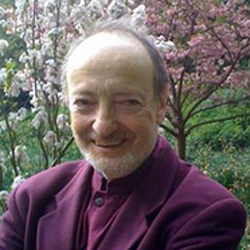
George Pór is an evolutionary thinker and a strategic learning partner to visionary leaders in business, government, and civil society. He is the originator of Enlivening Edge, and has been publishing the Blog of Collective Intelligence since 2003. A select list of his articles and book chapters on the fields of collective intelligence, organizational and social renewal can be found here. More about George’s work on the enlivening edge of planetary transformation is here.
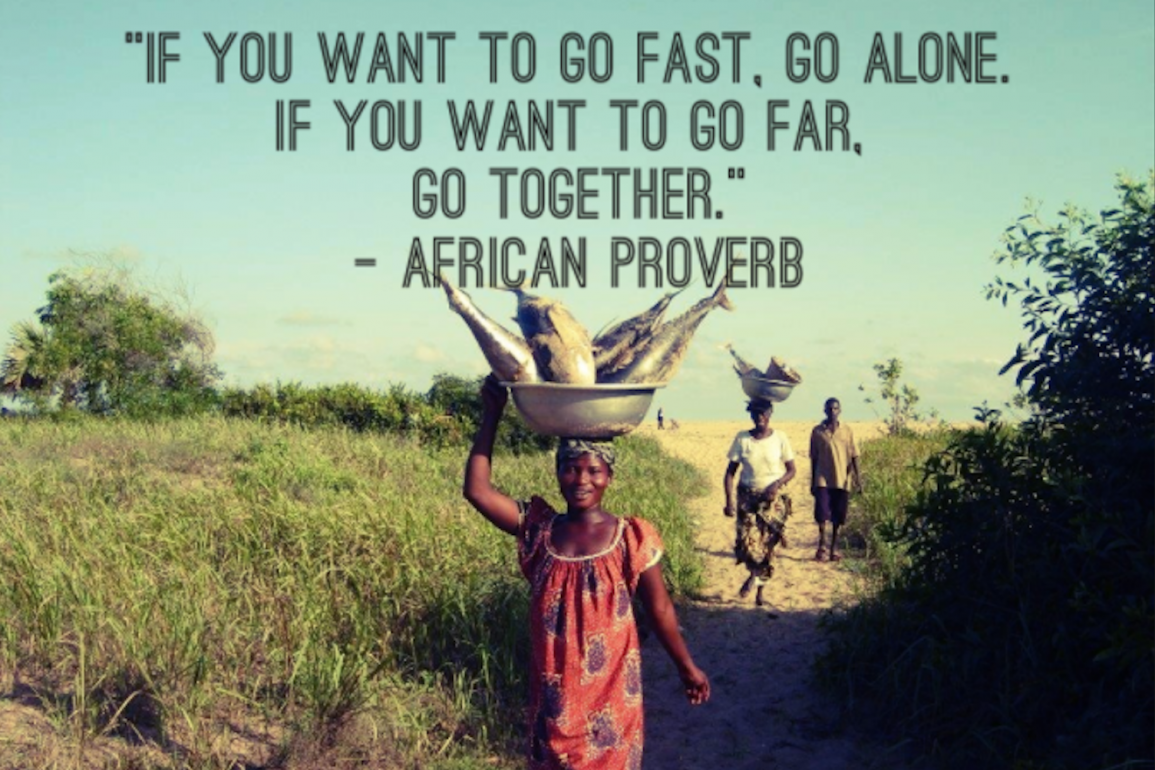
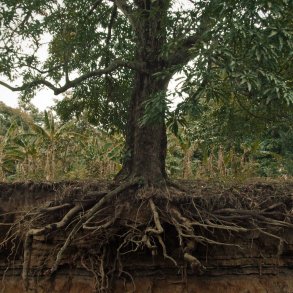
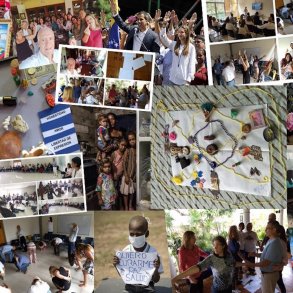


This article made me realise yet again the importance of deep listening as a foundation for transformative learning. Without refining and developing our listening practices, we would only hear what we already know or what fits with our present view of the world. Individual, community and social evolution are enabled by transformative listening practices and conversations.
In this context I re-read Aftab Omar’s article about transformative learning which to me strongly resonates with the necessary deep dive journey and helps to create a larger conceptual framework. https://enliveningedge.org/features/imagination-emergence-role-transformative-learning-complexity-leadership/#comment-8372
A practical example where dialogue is used to support organisational transformation is the ‘Workforce Scotland Community of Practice’. Through their work they explore the question:
“How do we know that dialogue is an effective way of generating effective change in organisations and individuals?” https://workforcescotland.com/2017/11/30/how-do-we-know-that-dialogue-is-an-effective-way-of-generating-effective-change-in-organisations-and-individuals/
There is a wealth of complementary practices being developed by communities all over the world to refine the art of listening. Examples are transparent communication, generative conversations, open dialogue, shared mindfulness, We-space practices and many more.
The value gifted by them through the people engaging and experimenting with them all nourish our co-creation of a better world that our hearts know is possible.
I am interested in learning more about the overlap or space where consciousness in society meets consciousness in individuals and communities as it is in that space where social evolution actually happens. It is here where individual and collective experiences become relevant for societal transformation.
It is in service of realising this potential that I feel inspired to offer my gifts to the evolution of individuals and communities and thus provide fuel for the evolution of society.
Without this bottom up approach practised by transformative individuals and communities, I dont think social systems can change in a meaningful and sustainable way. Transformative communities of practice will no doubt play a central role in our individual, collective and social evolution.
Thank you, George, and others for giving this mutual evolutionary process its new name, “transformative communities of practice.” We have just unveiled our own approach called “Practicing Wholeness: An Experiential Guide to Next-Stage Leadership Development.” This work grows out of our prior book, The Transformative Workplace, which you so kindly reviewed in EE back in 2015. We are currently inviting people to try it out for themselves by joining a learning community of practitioners. We would love to have your candid view of this work-in-progress in light of your own new “life’s work.” Take a look at http://www.practicingwholenessguide.com. Blessings on your gathering in Hungary – wish we could be there!